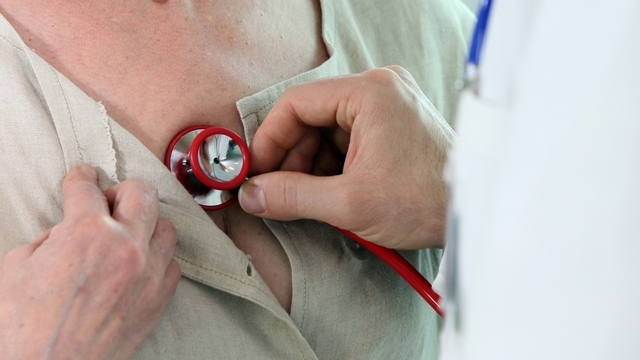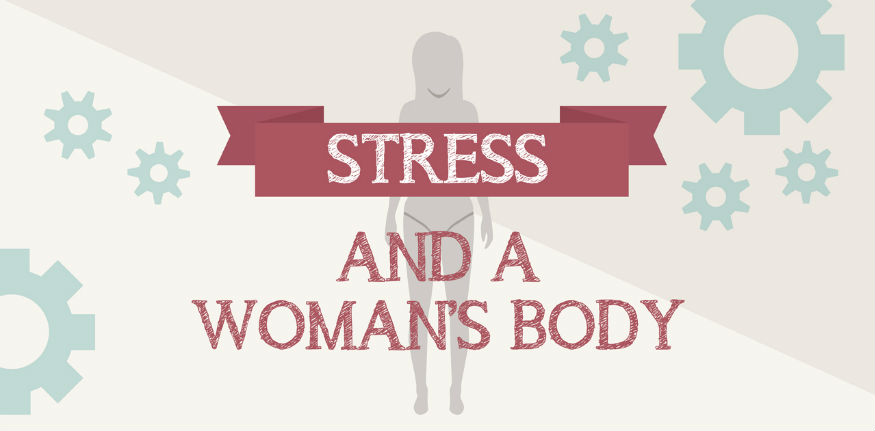 Auremar/PhotoSpin
Auremar/PhotoSpin
"I just about had a heart attack!" Ever said that when you were under a lot of stress?
Chances are, you didn't really think you were having a heart attack. But the fact of the matter is, stress that is severe and frequent or chronic can play a role in the condition of your heart.
Here are 10 ways your heart health might be affected by the stressors in your life.
1. Chronic daily stress
Friction between husband and wife, or being stuck in traffic, are just a couple of the daily kinds of frustrations that can cause chronic stress. Stress may lead to inflammation which is linked with heart disease, though it's uncertain as to whether or not it can be a direct cause of heart disease.
It is clear though that stress can stir up responses like smoking, drinking or overeating that can damage arteries. If these habits happen regularly enough the end of the road can be heart disease.
Fear, stress and over-exertion can release hormones that cause rupture of bacterial biofilms on the walls of blood vessels. Plaque is released into the bloodstream. A heart attack can be the result.
Stressful situations cause hormones to spike. Your blood pressure goes up, your heart beats faster and your blood vessels become more narrow. When this happens as a way of life, these effects may take a toll on heart health. And the habits you may turn to for comfort can increase the risk.
2. Severe, sudden stress
Severe, sudden stress can affect your heart. For example, people who've received traumatic news—like the death of a child or spouse—have, in rare cases, suffered an immediate heart attack. While this does not happen often, when it occurs it is called “broken heart syndrome.”
Women have suffered from this more frequently than men. It can even happen to people who have no history of heart disease.
3. Chronic anger
Everybody gets mad at times, but living with too much anger for too long, or not being able to resolve your anger, can be bad for your heart.
When anger is over the top, remarkable physiological effects can occur. Heart rate increases, blood pressure rises, and the more this is part of your life, the greater the chance that you become a candidate for a heart attack.
Secondary causes for bad heart health may also be triggered by smoking, and eating or drinking too much. These habits all can contribute to poor heart health.
4. Bottling up your feelings or living in fear
Blowing your top all the time is no good but neither is keeping too stiff an upper lip. There is a happy medium between going into rages and swallowing your angry feelings. It's worth your while to find this balance.
The fight or flight response is immensely helpful when you need a blast of adrenaline to deal with a sudden crisis. The release of adrenaline on a chronic basis means that you're breathing harder, your heart is pounding and your blood pressure is up too much of the time.
This state of affairs can contribute to headaches, stomach pain to the point of IBS or ulcers. And that can lead to overeating, drinking too much or smoking in attempts to find relief.
5. Smoking
Blood cells, blood vessels, and your heart are damaged by chemicals in cigarettes. The danger of atherosclerosis increases as plaque in the arteries builds up, causing arteries to narrow.
Blood flow is restricted as is the passage of oxygen through the blood. The risks for coronary heart disease, heart attack, heart failure and arrythmias all multiply when people smoke.
6. Overindulging in alcohol
Binge drinking can cause an irregular heart beat and pain in the middle of the chest. Heavy drinking over the long term can cause heart disease. Blood pressure rises, increasing your risk for heart attack.
The heart muscle can also be weakened by cardiomyopathy. Early death from heart failure can occur in severe cases.
7. Eating too much
Overeating can be dangerous for people with coronary heart disease or who are at high risk. Coronary artery inflammation can be triggered by triglycerides and a heart attack can be the result.
Too much food and alcohol can stimulate the release of adrenaline-like chemicals. An abnormal heart rhythm can develop which may be fatal.
8. Lack of physical activity
Engaging in regular exercise will help important endorphins (feel-good neurotransmitters)to be released in your body. This is a great way to reduce stress.
Exercise also helps reduce high blood pressure, strengthens your heart and helps you to lose weight.
9. Negative pessimistic thinking
A bleak outlook on the world is more likely to ultimately contribute to the risk of heart disease than a positive take on life. Stress hormones decrease in the face of laughter. Artery inflammation diminishes.
HDL (good) cholesterol levels rise. In the absence of joy and laughter, stress hormones can climb, artery inflammation increases and HDL cholesterol drops.
10. Constant connection to the world
In the present day of communication overload, you can be overwhelmed if you don't make a point of stepping away from the computer, from the TV or from your cellphone.
Protect your heart along with your sense of well-being by carving out time every day when you are not plugged in.
Some stress is inevitable in life. But you can lessen some of the stressors and their effects in your life by taking control where you can, and releasing control where you must. Your heart will thank you for it.
Sources:
Stress and your heart. health.harvard.edu. Retrieved Sept. 19, 20914.
http://www.health.harvard.edu/newsletters/Harvard_Womens_Health_Watch/20...
Research Explains How Stress Leads to Heart Attack. Natureworldnews.com. Retrieved Sept. 19, 20914.
http://www.natureworldnews.com/articles/7492/20140610/research-explains-...
Stress and high blood pressure: What's the connection? Mayoclinic.org. Retrieved Sept. 19, 20914.
http://www.mayoclinic.org/diseases-conditions/high-blood-pressure/in-dep...
Reduce your stress. Heartandstroke.com. Retrieved Sept. 19, 20914.
http://www.heartandstroke.com/site/c.ikIQLcMWJtE/b.3484039/k.3548/Heart_...
Alcohol and heart disease. Drinkaware.co.uk. Retrieved Sept. 19, 20914.
https://www.drinkaware.co.uk/check-the-facts/health-effects-of-alcohol/e...
Stress and Heart Health. Heart.org. Retrieved Sept. 19, 20914.
http://www.heart.org/HEARTORG/GettingHealthy/StressManagement/HowDoesStr...
Don't have a Thanksgiving heart attack. Consumerreports.org. Retrieved Sept. 19, 20914.
http://www.consumerreports.org/cro/2013/11/overeating-and-why-it-matters...
How Does Smoking Affect the Heart and Blood Vessels? NHLBI.NIH.gov. Retrieved Sept. 19, 20914.
http://www.nhlbi.nih.gov/health/health-topics/topics/smo
Reviewed September 22, 2014
by Michele Blacksberg RN





Add a Comment2 Comments
Some good info but needs followed up with data about reducing stress. Sure, some are obvious...stop drinking and smoking, but talking about heart attacks could cause more stress.
October 25, 2014 - 8:38amMaybe include quiet meditative time, get spiritual even the benefit of a ten minute walk. Please consider a follow up with more info about reducing stress.
This Comment
Excellent advice ,even one a day practice will go a long way
October 16, 2014 - 11:21amThis Comment